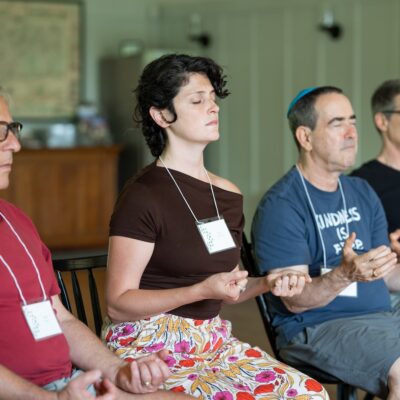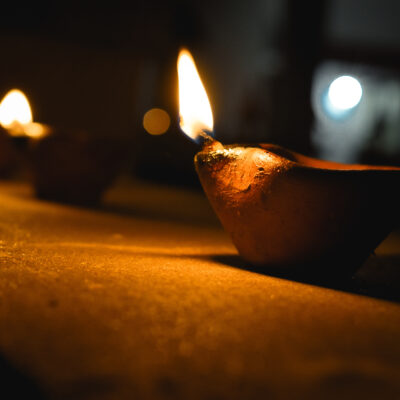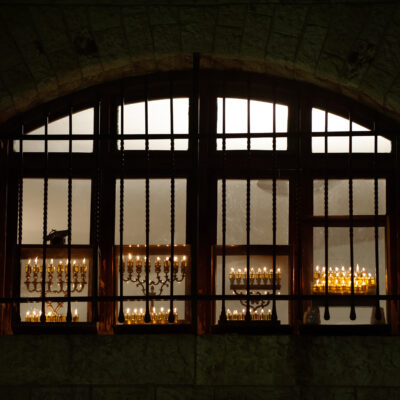Opinion
FACT CHECK
Democratic Israel lives: Responding to Omer Bartov yet again
In a wide-ranging interview in yesterday’s New York Times, professor Omer Bartov doubled down on his charge that Israel is not only perpetrating a genocide in Gaza but is on its way to becoming, in his words, “a full-blown apartheid authoritarian state. And such states don’t last very long.”
I don’t disagree with Bartov’s condemnation of the policies of the Netanyahu government, nor with his repulsion at and empathy for the suffering of the civilian population in Gaza, nor with his premise that there has been a “kind of mutual dehumanization” by both Israelis and Palestinians. Where he and I part company is in our respective allocation of responsibility for such dehumanization, and I take issue with his characterization of the State of Israel and its people as nothing more than the alter ego of the Netanyahu government.
Mostafa Alkharouf/Anadolu via Getty Images
Hundreds of people march in Tel Aviv carrying placards demanding a ceasefire in Gaza and the return of Israeli hostages, July 12, 2025.
In an article published in eJewishPhilanthropy earlier this week, written together with professor Michael Berenbaum, I explained why I, as a law professor who has been teaching about the law of genocide for more than 15 years, do not believe as a matter of international criminal law that Israel is perpetuating a genocide in Gaza. What I want to elaborate on here are Bartov’s apparent conclusion that the State of Israel and Israeli society — more to the point, the Jewish majority of that society — are beyond hope, and his coterminous conviction that Israel and Israel alone is responsible for the Gaza war and its carnage.
I believe he is wrong on both counts.
In his most recent New York Times interview, Bartov totally ignores Hamas’ role in and responsibility for the war, save for the contention, presented totally without basis, that if Hamas were to surrender and hand over the hostages, Israel would proceed “to completely destroy Gaza.” Indeed, without bothering to note that Israel withdrew from Gaza back in 2005, Bartov seems to suggest that Hamas’ savagery on Oct. 7, 2023, was nothing more than a reaction — perhaps even an understandable reaction — to “the Occupation.” His one reference to that date in the interview is to say that Israelis were “so appalled” by it “because suddenly those people broke out of their cages and attacked us.”
I am a longtime supporter of and occasional participant in the Israeli-Palestinian peace process. In December 1988, I was one of five American Jews who broke the taboo on interactions with the Palestine Liberation Organization by meeting with Yasir Arafat and other leaders of the PLO in Stockholm. This meeting resulted in the PLO’s first public “acceptance” of Israel as a state in the Middle East. I disagreed then with Israeli political leaders and their supporters in the American Jewish community who refused to recognize the Palestinians as a national entity entitled to self-determination and full legal and civil rights. I disagree today with Bartov and likeminded others who demonize Israel at every opportunity and refuse to acknowledge that the present Israel-Hamas war is not of Israel’s making.
Israel’s need to eliminate Hamas as an existential threat in the aftermath of the group’s brutal assault — unleashed on Israeli Jews and Arabs, foreign workers, whoever was in their path — undercuts Bartov’s contention that “what Israel is doing is fighting a war against Palestinians.” The Oct. 7 attacks were the catalyst for the present war, and regardless of the deficiencies in Israel’s execution of said war, ignoring the reality that (a) it is in fact a war being waged against Hamas, and (b) killing Palestinian civilians is not and has never been the war’s purpose, is disingenuous at best.
Despite claiming that he is “a big supporter of the state of Israel” and that he is “not against Zionism at all,” Bartov has in effect given up on Israel, declaring categorically that “the kind of Zionism that exists in Israel now, the kind of state it has become, I can’t support it.”
What of the hundreds of thousands of Israelis who demonstrate regularly against the Netanyahu government in the streets of Tel Aviv, Jerusalem and other Israeli cities and towns, calling for a ceasefire and the return of the hostages? What of those present and former political leaders who publicly challenge the Netanyahu government’s policies regarding the Gaza war? Individuals such as Israeli President Isaac Herzog, former prime ministers Ehud Olmert and Ehud Barak and former foreign minister Tzipi Livni, and opposition leaders such as Yair Lapid, Yair Golan and Gadi Eizenkot? They are on the front lines upholding Israel’s democratic essence. Do they not deserve, if not support, then at least an acknowledgment of their stance and actions? As far as Bartov is concerned, they either do not exist or are irrelevant.
The fact is that Israel is and remains a living, breathing democracy, and its future will be decided at the ballot box in the next national election. Bartov’s prediction “is that Israel will become increasingly authoritarian and may end up being a full-blown apartheid authoritarian state.” But that prediction will only come true if Israelis vote to return Prime Minister Benjamin Netanyahu and his present coalition to power when they next have the chance. Most polls indicate that this will not be the case. I prefer to hope, perhaps naively, that a ceasefire and an end to the carnage can be achieved sometime soon and that it will result in the end of the Netanyahu-Smotrich-Ben-Gvir era.
Yes, Israel is confronted by serious problems, some of them demons of its own making. But that doesn’t mean that those of us who believe in Israel should abandon it because of the policies of its present government, and it does not absolve the Palestinians of their share of responsibility for the death, destruction and suffering in Gaza since Oct. 7, 2023.
Menachem Z. Rosensaft teaches about the law of genocide at the law schools of Cornell and Columbia universities. He is general counsel emeritus of the World Jewish Congress and the author of Burning Psalms: Confronting Adonai after Auschwitz (Ben Yehuda Press, 2025).

 Add EJP on Google
Add EJP on Google









